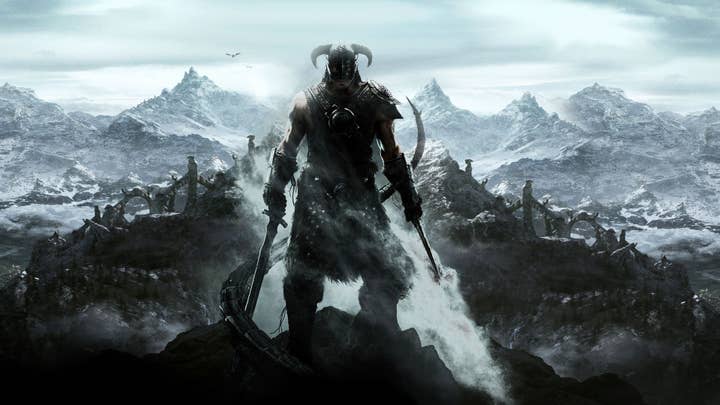Microsoft won't try to buy industry dominance | Opinion
Microsoft was expected to buy control of the games biz from the start -- the Zenimax acquisition echoes those times, but today's Microsoft is a much smarter company
When Microsoft first announced its intention to enter the console business 20 years ago, there was a pretty common bit of punditry that predicted that industry rivals would eventually be crushed by the company's enormous financial might -- not to mention the famously combative and often underhanded approach it took to market competitors in the Gates era of "Embrace, Extend, Extinguish" and "Fear, Uncertainty and Doubt."
There were major missteps in the original Xbox launch, for sure, but the logic held that the sheer power of Microsoft's cash hoard would overpower any problems. This was a company so large and so aggressive that once its sights were set on a sector, it would spend whatever money was required and acquire whatever companies it needed to ensure its eventual dominance. All the way back in 2000, the hot rumour was that Microsoft's first big acquisition would be Sega -- while a rather more fanciful rumour, though apparently something that really was explored to some degree behind the scenes, was that it would buy Nintendo.
That never happened, with negotiations with Sega ultimately resulting in a deal to support Xbox with a large number of software titles rather than an acquisition, and the company's big purchase turning out to be the already ailing Rare instead. The prospect that Microsoft would respond to early challenges by buying studios and publishers until the problems were overcome was, however, pretty fixed in people's minds for quite a few years.
It's by far the largest deal ever made in the non-mobile video games space
This comes to mind, obviously enough, because Microsoft in 2020 has, only weeks away from the launch of a new generation of console hardware, just pulled out exactly the kind of multi-billion dollar, big swinging dick kind of acquisition that the industry was keyed up to expect from it back in the early 2000s. The acquisition of Bethesda parent company Zenimax, along with a stable of hugely popular IP and franchises, is the second most valuable in the history of the games industry, the largest overall being Tencent's purchase of Supercell in 2016. It's by far the largest deal ever made in the non-mobile video games space -- in fact, the next largest deal for a non-mobile games company was Microsoft's own acquisition of Minecraft developer Mojang for $2.5bn, a third of what it's paying for Zenimax.
There's absolutely no way around what this is -- it's a giant, powerful statement of intent about just how seriously Microsoft has decided to take Xbox and the games business overall, timed perfectly to support the launch of its new console hardware (just don't call it a "generation", I guess), and a big heavy boot stomping on the notion that the company's very broad, blurry-edged philosophy of what a "platform" actually is was going to translate into it being somehow wishy-washy in how it chose to bring the fight to rivals in the gaming space. Microsoft is here to compete, and it might be 20 years later than expected, but it's finally taken out the biggest weapon in its arsenal -- namely its cheque book.
If you're looking at this through the lens of console wars past, it would be reasonable to be a bit apprehensive about what this means. There's absolutely a scenario that plays out here where, for all that Xbox owners might rejoice temporarily at this news (and the industry at large celebrates Microsoft's re-commitment to gaming), this ends up in a truly scorched-earth console generation -- a brutally anti-consumer landscape where the locus of competition shifts away from innovation and quality in games and services, and instead towards who can do the biggest deals and hoard the biggest piles of exclusive IP.
In this scenario, Bethesda's games go exclusive on Xbox as soon as existing contractual obligations permit, becoming the opening salvo in a war waged far above the heads of consumers and creators in which relatively small (in market capitalisation terms) publishers like Square Enix, Ubisoft and Capcom, as well as every independent studio on the planet and a host of licenses for IP and other forms of exclusivity, are all up for grabs. Franchises, IPs and creative teams that have been cross-platform all along would get locked up behind exclusivity deals. That sometimes happens already, of course. Square Enix, which did a deal with Microsoft for Tomb Raider exclusivity in the last generation and appears to have done the same with Sony for Final Fantasy XVI in this generation, seems especially susceptible to the lure of platform holder cash, but would become endemic to an infuriating extent in this scenario.
This is precisely the scenario that would have played out had something like this happened back in 2001, and while the assumption was that Microsoft's giant cash hoard would grant it inevitable victory, that was never necessarily true -- nor is it true now. Microsoft is a trillion-dollar company which dwarfs its platform rivals, sure, but it's primarily a cloud services and business software company. Xbox is barely a blip in its financial results at both the best and worst of times, and there are only so many billions it can justify investing in what's essentially, in scale terms, a side project.
Without PlayStation and everything that surrounds it, Sony's fundamental viability as a business is in question
Sony, on the other hand, is a much smaller company, and PlayStation's success is absolutely core to its existence. Without PlayStation and everything that surrounds it, Sony's fundamental viability as a business is in question. Both Sony and the financial institutions which back it would be willing to make big, risky investments if it finds itself dragged into that kind of battle, and Sony's capacity to lean heavily on Japan's banks and investment houses if it finds itself threatened in this way is a significant force multiplier.
Even Nintendo, which has a pretty dramatic cash hoard of its own, might be drawn into such a conflict, feeling forced to make defensive acquisitions just to avoid being squeezed between the other two sides. Microsoft's financial might has always been very real; the notion that this means it could just buy its way to dominance of the games business has never been as simple as it sounded.
Of course, it's not 2000 or 2001 right now. It's 20 years since anyone thought Microsoft's path to games industry dominance ran through a Sega acquisition, and it's also 20 years since Bill Gates stepped down and the company overall began a long, painful and often meandering period of transition. The intervening decades have changed Microsoft in a lot of very significant ways. The years under Steve Ballmer -- who became CEO in 2000, the same year that Xbox was first revealed to the public -- were humbling for the company, whose image as a corporate 800-pound gorilla that could dominate any market it deigned to enter was pummelled by successive failures.

Little upstart companies and truculent business sectors kept trouncing Microsoft's efforts. Most notably, multiple attempts to make headway in the mobile space -- including, ultimately, a $7.2 billion acquisition of Nokia's handset business -- were shot down by Apple and Google, but other failures like Zune (and the whole intended Zune media ecosystem) and Bing, the proliferation of non-Windows computing devices like tablets, smartphones and Chromebooks, and fresh challenges to its business software from services like Google Docs all contributed to an era in which Microsoft's assumptions about its own prowess, as much as the world's assumptions about Microsoft's capabilities, were all severely dented.
That's why the narrative of what a gigantic Microsoft acquisition in the games space actually means and where it will lead needs to be different now from what it was in 2001; because this isn't the Microsoft of 2001 any more. If this was still the Gates era or the Ballmer era, then you'd be quite right to roll your eyes at Phil Spencer's linguistic dancing around whether Bethesda titles will be Xbox-exclusive in future, because under Gates or Ballmer, of course they would have been Xbox-exclusive. The notion of letting a Microsoft subsidiary publish games on a non-Microsoft console would have been anathema; how does that serve the only goal that matters -- crushing the competition?
This isn't Microsoft trying to brute-force a console war victory with its chequebook
But this isn't Gates' Microsoft, or Ballmer's Microsoft. This is Satya Nadella's Microsoft -- a CEO whose most consistent policy right from the outset has been that Microsoft's software and services should be available on whatever device consumers choose to use; that they should compete by making great products and services that people will want to use on iPads, on Android phones, on Linux servers and Mac laptops, rather than by trying to ringfence their software's users into the Windows platform.
Nadella's approach isn't founded on some hippy notion that users just want to be free, man; it's based on a rigorous understanding of where the value of Microsoft's offering actually lies, and after a moribund decade, his approach has returned the company to growth levels that outstrip even its glory days in the 1990s.
The Zenimax acquisition isn't just huge for the games industry, it's also huge for Microsoft -- the third-largest acquisition the company has ever made, behind only LinkedIn and Skype in valuation, so this is absolutely a decision made at the top level of the company, not just at the Xbox leadership level. It's hard to imagine Microsoft's leadership handing Xbox billions for a high-profile acquisition that's going to be managed in a way that runs counter to every philosophy Nadella has pushed at the company as CEO -- let alone one that will lead to a scorched-earth competitive landscape (against Sony, a major client of Microsoft's in the cloud services space, no less) demanding yet more acquisitions to stay relevant.
It seems much more likely that we should take statements from Spencer and other Microsoft figures at face value. In this scenario the Zenimax acquisition isn't the opening shot of a scorched-earth chequebook war; it's simply designed to ensure a steady supply of multi-platform third-party titles that are guaranteed to be optimised for Xbox and, more importantly, to be part of the Game Pass subscription. The pitch to consumers is that you can play these games on PS5, sure, but if you had Game Pass you'd be getting a great experience and playing them as part of your monthly subscription. This isn't Microsoft trying to brute-force a console war victory with its chequebook; it's a strategic acquisition designed to make Game Pass -- arguably its single biggest competitive advantage in the upcoming generation -- into a better and more appealing service.
Microsoft will still have exclusives from its own first-party studios, of course, but otherwise it's business as usual in this scenario, and Sony doesn't need to consider a retaliatory acquisition. Instead, Sony's response must be to keep doing what it really ought to be doing already -- figuring out how the hell to counter the value proposition of Game Pass. This is the healthy kind of competition, where rather than locking up exclusive content that was formerly multi-platform, the platform holders instead innovate and improve their offerings.
In hindsight, the industry dodged a bullet when Microsoft decided not to try to buy its way to dominance 20 years ago. The Microsoft of today is a vastly smarter and more effective company, and while we can't know for certain what it intends for Zenimax just yet, there's no evidence that this acquisition means the lessons of two decades have been rolled back.









